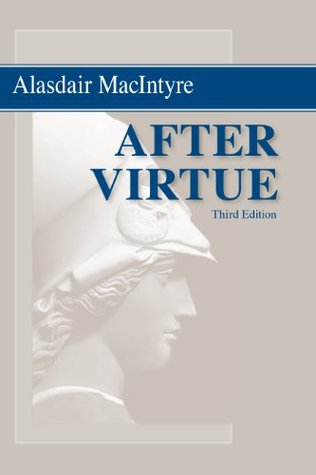But while the falsity of certain metaphysical views is necessary, if Hume’s own position on the virtues is to be vindicated, that falsity is not sufficient. And Hume’s problem about how ‘ought’ may be derived from ‘is’ denies him any overt appeal to his own understanding of the nature of things to supply that insufficiency. Hence, although Hume may find in what he takes to be the falsity of the Christian religion a ground for condemning the adherents of the monkish virtues—Hume condemns humility as useless, for example—his final court of appeal can be no more than the appeal to the passions of
...more
Welcome back. Just a moment while we sign you in to your Goodreads account.


